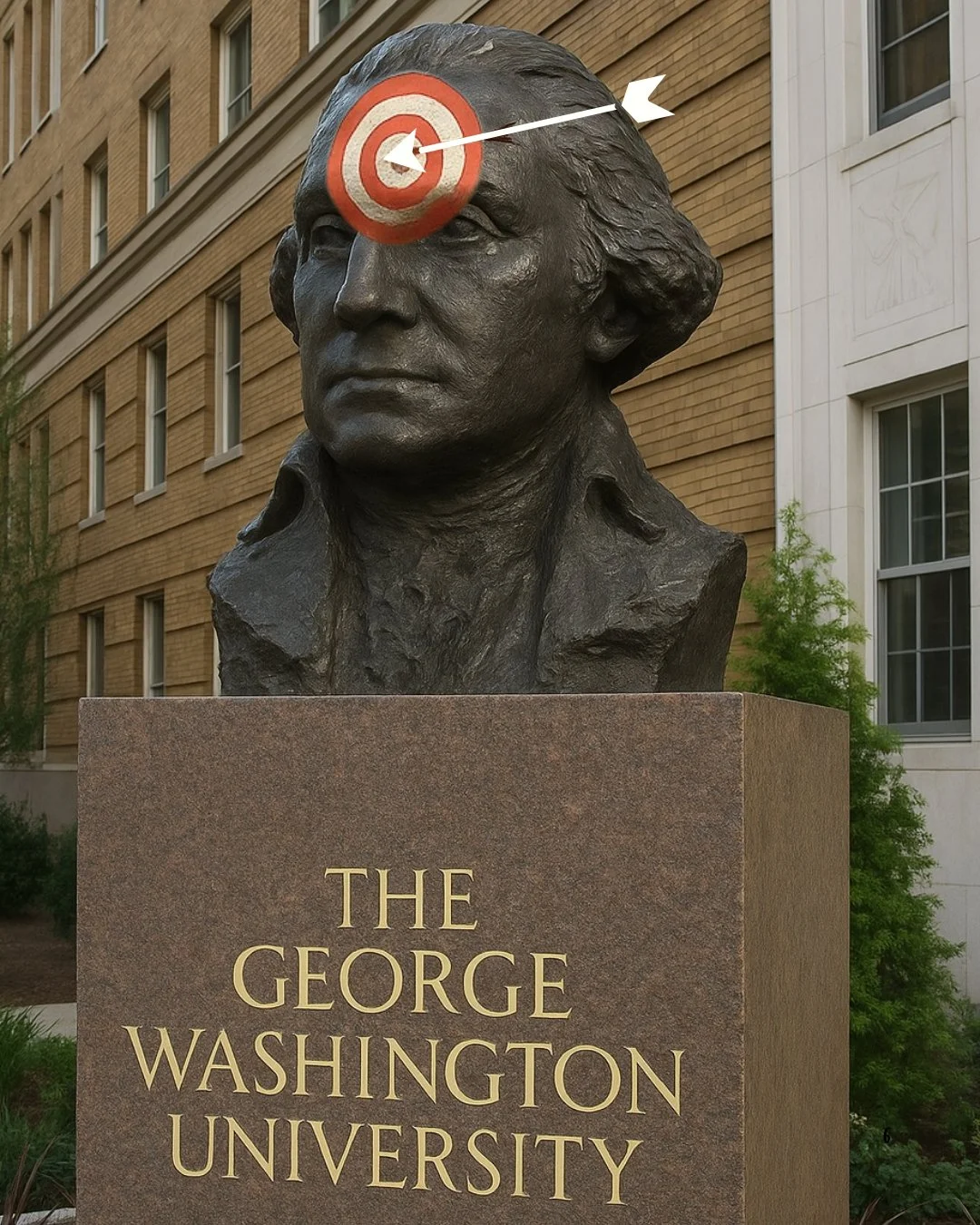The Hunger Games: Higher Ed Edition?
When I saw the news that George Washington University had been cited by the U.S. Department of Justice for anti-discrimination violations, I immediately thought of The Hunger Games — and not just because the plot occurs in a place called the Capitol.
This moment — universities being “selected,” media swarming, settlements flying — feels like a higher ed sequel to the spectacle we saw in the film.
If you missed the 2012 dystopian blockbuster, here’s the gist: each year, a glammed-up government official named Effie Trinket pulls names from a glass bowl in a ritual called the reaping. The “winners” are sent into a deadly arena — forced to fight to the death as punishment for past uprisings against the Capitol. Meanwhile, the charismatic but maniacal President Snow broadcasts the whole thing as both entertainment and a none-too-subtle flex of his absolute power.
Fast forward to today: George Washington University has joined Columbia, Harvard, and a few others in being “reaped” by the DOJ. Whether their selection is random or deserved isn’t the point. The real questions are: Why now? Why these? And why the laser focus on antisemitism and not a broader sweep of civil rights enforcement?
Let’s not kid ourselves. Many American institutions — including universities — have engaged in discrimination for decades:
Jewish quotas at elite schools
Asian American applicants penalized for being “too academic”
Women and people of color underpaid and overlooked
LGBTQ+ individuals excluded, often without recourse
People with disabilities denied basic accommodations
And through all of it, federal enforcement was … minimal. Civil rights progress has largely come from the relentless effort of victims and advocates — not from press conferences or Justice Department statements.
Now, suddenly, the DOJ steps in. Publicly. Loudly. Proudly.
Selectively.
Should there be consequences for discrimination? Of course. Columbia agreed to pay $21 million to settle an EEOC case over antisemitic harassment, and another $200 million in Title VI claims — over $220 million total. That’s no slap on the wrist.
But compare that with cases where the government barely showed up:
University of Michigan paid $490 million to more than 1,000 sexual abuse survivors — not because of DOJ litigation, but through private lawsuits.
USC paid over $1 billion in a similar case. Again, DOJ nowhere in sight.
At the University of Vermont, a transgender athlete alleged severe discrimination and retaliation. No fine. No trial. No press conference. Just a quiet resolution.
These aren’t footnotes. They point to a pattern: The DOJ acts decisively for some groups, while others are left to fend for themselves.
Which leads to a harder question: When is the DOJ a true civil rights protector — and when is it just a selective enforcer, reflecting the priorities of whoever’s in charge at the time?
In a year when LGBTQ+ protections are being rolled back across multiple states and the EEOC is being defunded, where do those communities turn for protection? And what happens when the government itself is the violator?
Think about systemic failures in the military, where women — and men — have reported sexual assault and retaliation for decades. If “intentional indifference” has any real legal meaning, surely it applies there too. So who gets held accountable when the arena is the Pentagon?
To be clear: universities should be scrutinized. So should every employer. Including the federal government. Because if accountability depends on who’s in office, is it really accountability at all?
Donald Sutherland didn’t just accept the role of President Snow — he fought for it. He believed The Hunger Games was a warning.
“I wanted young people to be outraged. I wanted them to recognize that the allegory was real.”
So…
Are we outraged? Or just entertained?
If we’re going to hold institutions accountable, we also need to scrutinize the system deciding who gets dragged into the arena — and who stays safely in the glass bowl.

